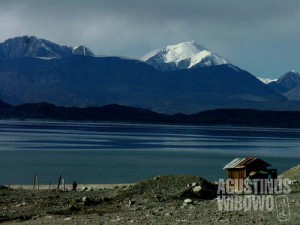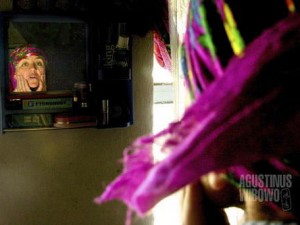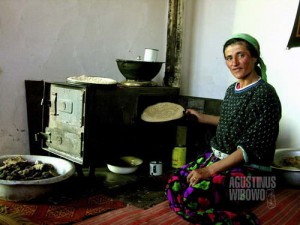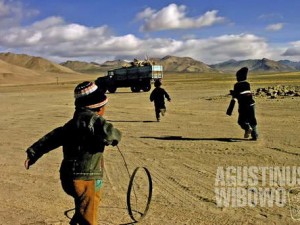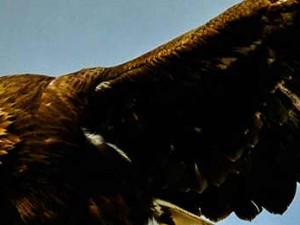Karakul – the Giant Death Lake
The giant death lake of Kara Kul. Karakul in Kyrgyz language means ‘black lake’. The lake itself is not black. In fact, this huge water body was deep blue when the sky is friendly, and turns to be grey when the sun chooses to hide behind the clouds. But the life is as dark as its name. There is no life at all in this huge lake. The lake has high concentration of salt. But despite of the salt, the lake also freezes in winter. The village next to the lake, bears the same name, is a Kyrgyz settlement with only one Tajik man inhabitant – a policeman. I was supposed to stay with the Tajik policeman, as it’s the only chance for me to communicate with my Persian knowledge. But when I arrived there, the Tajik man had left to Khorog.I stayed with a Kyrgyz family, an Acted-arranged guest house. They don’t speak Tajik, but the husband know little bit and can sing the national anthem proudly, “Zindabosh e vatan Tajikistan e azadi man (Long Live o Fatherland, My Free Tajikistan!)” He [read more]

